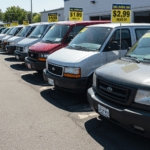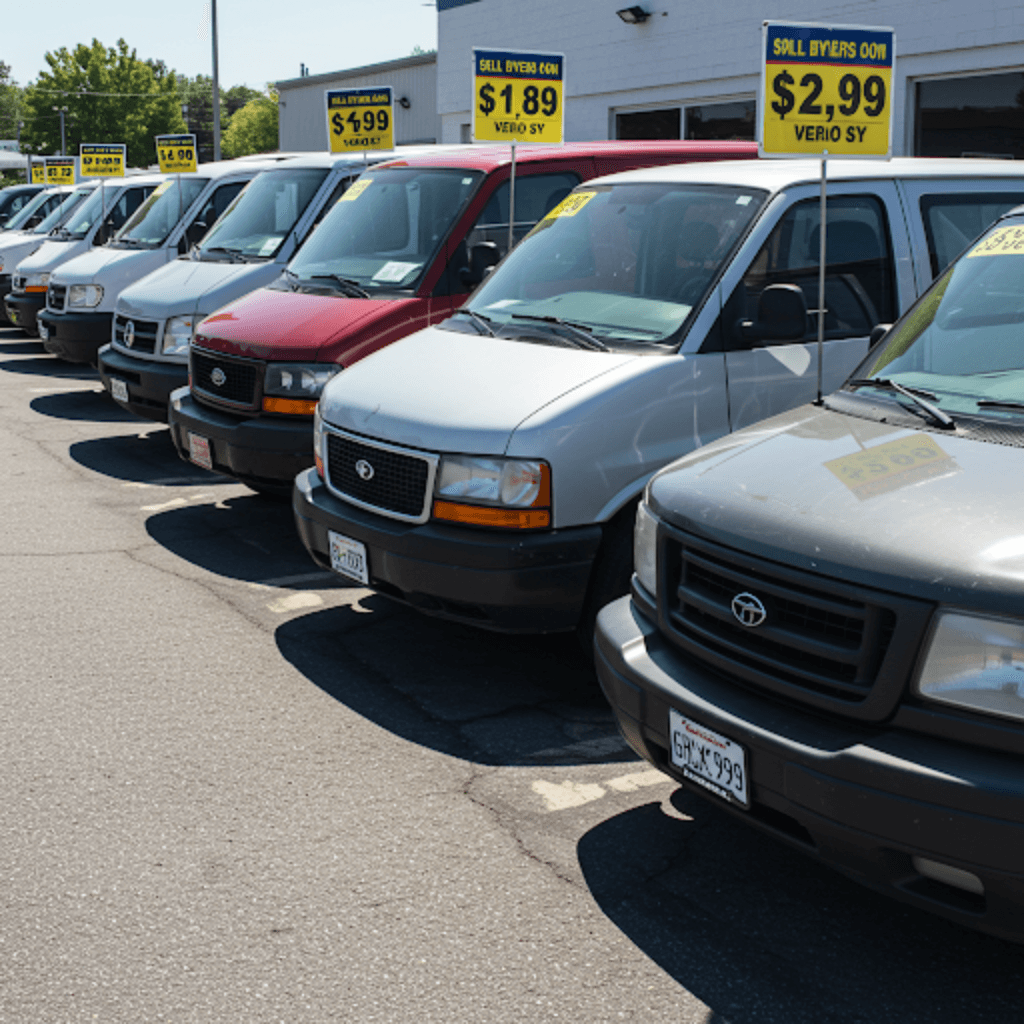
Navigating the World of Used Vans for Sale in the UK: A Comprehensive Guide
Buying a used van can be a savvy financial decision, whether you’re a tradesperson needing a reliable workhorse, a small business owner expanding your delivery fleet, or an individual looking for a versatile vehicle for leisure activities. The UK market offers a vast array of used vans, from compact city runarounds to large panel vans capable of handling significant loads. However, navigating this market requires careful consideration and research. This guide provides a comprehensive overview of buying used vans in the UK, helping you find the perfect vehicle at the right price.
Why Choose a Used Van?
The primary advantage of buying used is, unsurprisingly, cost. A new van depreciates significantly as soon as it leaves the dealership. A used van, even one that’s only a year or two old, will be considerably cheaper, allowing you to save a substantial amount of money or potentially afford a higher-specification model than you could buy new. Furthermore, insurance premiums for used vehicles are often lower than for new ones. The wider choice available in the used market is another significant benefit. You’ll find a greater variety of makes, models, sizes, and configurations, making it easier to find a van that perfectly suits your specific needs.
Choosing the Right Type of Van
Before you start browsing listings, it’s crucial to identify the type of van that best fits your requirements. Consider the following:
- Size and Payload: How much space do you need? What weight will you be carrying? Small vans like the Ford Transit Connect are ideal for light deliveries and urban driving. Medium vans, such as the Vauxhall Vivaro or Mercedes-Benz Vito, offer a good balance of space and manoeuvrability. Large vans, including the Ford Transit and Mercedes-Benz Sprinter, provide maximum cargo capacity.

- Body Style: Panel vans are the most common, offering enclosed cargo space. However, you might also consider crew vans (with a second row of seats), tipper vans (for construction and landscaping), dropside vans (with flatbeds and hinged sides), or Luton vans (with a box body extending over the cab).
- Fuel Type: Diesel engines are traditionally popular in vans due to their fuel efficiency and torque, especially for heavy loads and long distances. However, petrol and increasingly, electric vans are becoming viable options, particularly for urban use where emissions regulations are stricter.
- Features: Think about any specific features you need, such as air conditioning, satellite navigation, parking sensors, Bluetooth connectivity, or a bulkhead separating the cab from the cargo area.
Where to Find Used Vans for Sale
There are several avenues to explore when searching for used vans in the UK:
- Franchised Dealers: These dealerships often sell “approved used” vans that have undergone thorough inspections and come with warranties. While generally more expensive, they offer peace of mind.
- Independent Dealers: Independent dealers offer a wider range of makes and models, often at lower prices than franchised dealers. However, it’s crucial to do your due diligence and check the dealer’s reputation.
- Online Marketplaces: Websites are incredibly popular for browsing used vans. They provide a vast selection and allow you to filter your search based on various criteria. Be prepared to travel to view and test drive vehicles.
- Private Sellers: Buying directly from a private seller can potentially get you the best price, but it also carries the most risk. You’ll have less legal protection if something goes wrong.
- Auctions: Auctions can be a good place to find bargains, but they require experience and a good understanding of vehicle values. You’ll also need to be prepared to make quick decisions.
Inspecting a Used Van
Once you’ve found a potential van, a thorough inspection is essential. Ideally, take someone with mechanical knowledge with you. Key things to check include:
- Bodywork: Look for any signs of rust, dents, scratches, or previous accident damage. Check the panel gaps for uniformity, which can indicate repairs.
- Engine: Start the engine from cold and listen for any unusual noises. Check for leaks, smoke from the exhaust, and the condition of the oil and coolant.
- Transmission: If it’s a manual, check the clutch bite point and ensure smooth gear changes. For automatics, ensure the shifts are seamless and there’s no slipping.
- Suspension and Steering: During the test drive, listen for any knocking or clunking sounds. Check the steering for play and ensure the van tracks straight.
- Tyres: Examine the tyres for tread depth and even wear. Uneven wear can indicate suspension problems.
- Interior: Check the condition of the seats, dashboard, and controls. Ensure all electrical features (lights, wipers, radio, etc.) work correctly.
- Service History: A full-service history is a strong indicator of a well-maintained van. Check for regular servicing and any significant repairs.
- Vehicle history report: This important check can reveal if the van has been written off, stolen, or has outstanding finance.
Mileage Considerations
Mileage greatly impacts a van’s value and potential lifespan. Generally, vans with a lower mileage are more desirable, though high mileage is not necessarily always bad. A van that has done 150,000 miles primarily on motorways might be in better condition than one with 80,000 miles that have all been done in stop-start city traffic. Pay close attention to service records, as good maintenace can extend a vans life.
Negotiating the Price
Don’t be afraid to negotiate the price, especially with private sellers and independent dealers. Research similar vans for sale to get an idea of a fair price. Be prepared to walk away if you can’t reach an agreement.
Finalising the Purchase
Once you’ve agreed on a price, ensure you get a written receipt detailing the vehicle’s details, the agreed price, and the date of sale. If buying from a dealer, you’ll usually have more paperwork, including a warranty agreement. Make sure you understand all the terms and conditions before signing anything. Ensure you have appropriate insurance cover before driving the van away.
Buying a used van requires due diligence and some savviness. Take time, do your research, and stick to your budget. You can get many years and miles of service from a used van.







